Alexandria/Pineville Page6
This page courtesy of
William Bozic, Houston, TX |
|
|
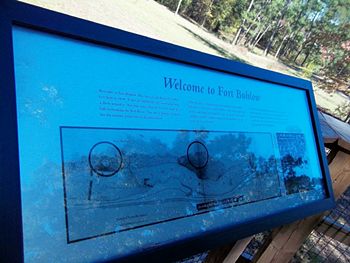 |
|
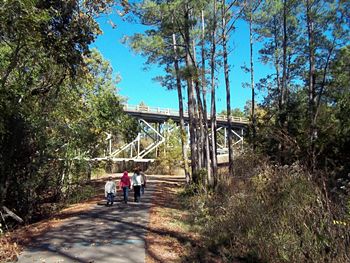 |
|
(November 27,
2010) Enlarge
Welcome to Fort Buhlow Interpretive Marker |
|
(November 27,
2010)
Enlarge
Pathway Between Forts Randolph and Buhlow
Entrance to Fort Buhlow via auto is no longer possible as the entrances
for vehicles have been sealed shut. Visitor must now enter via paved
walking path along the Red River and under the O.K. Allen Bridge (see
Photo) Construction was still underway so the pavement ended and
gravel/dirt followed to a wooden elevated walkway |
|
|
|
|
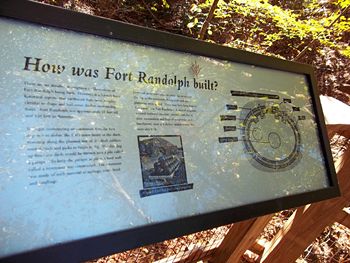 |
|
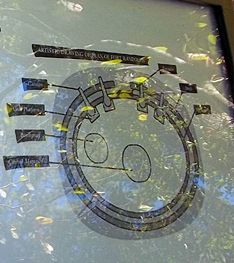 |
|
(November 27,
2010)
Enlarge How
was Fort Randolph Built?
This interpretive panel along the elevated wooden walkway at Fort
Randolph explains how the fort was constructed and provides an artist's
rendition of how the fort appeared. According to the interpretive panel
no plans have been found, however for the visitor the large earthworks
are strong testimony to the shape of the fort |
|
|
(November 27,
2010)
Enlarge
Fort Randolph Plan
Based on information provided on an interpretive marker at, and website
of, Fort Randolph-Buhlow State Historic Site, Forts Randolph and Buhlow
were constructed by Confederates in order to repel future Union attacks
through NW Louisiana. Construction completed in March 1865 was under the
command of Capt. Christopher M. Randolph and supervised by military
engineer Lt. Alphose Buhlow for whom the forts are named. No plans were
found, but a drawing of Fort Randolph based on the large earthworks
which still exist shows an artist's rendition of how the fort might have
appeared |
|
|
|
|
|
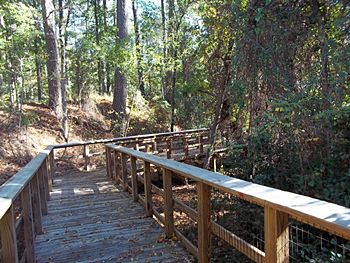 |
|
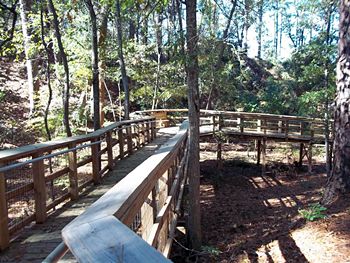 |
|
(November 27,
2010)
Enlarge
Start of Path at Fort Randolph
This is the start of an elevated walkway around Fort Randolph. The
gradual inclines and declines make an easy, almost unnoticeable grade,
and at intervals along the elevated path there are interpretive markers.
To guard against erosion the walkway keeps traffic off the earthworks
and affords a nice view |
|
(November 27,
2010)
Enlarge
Fort Randolph
Timber obstructs the view but it is possible to see the huge earthen
ramparts of Fort Randolph to the left and front of the photo. The trees
would not have been here during the war, but today provide shade and
protection for the earthworks |





